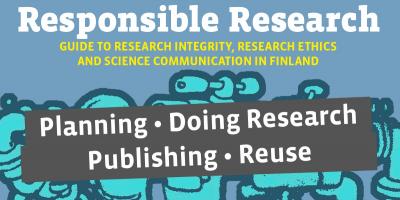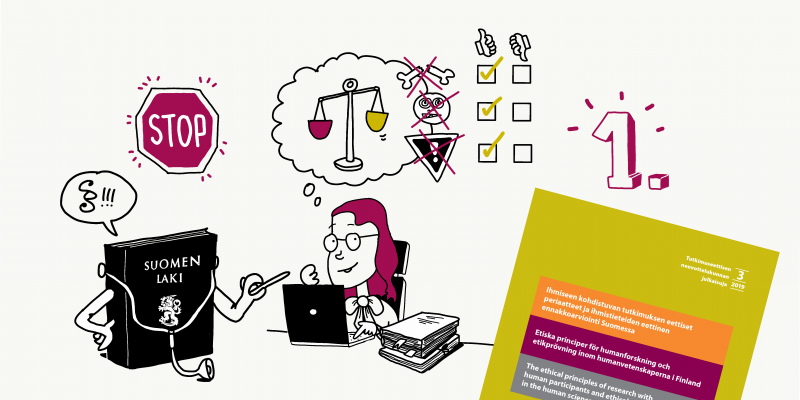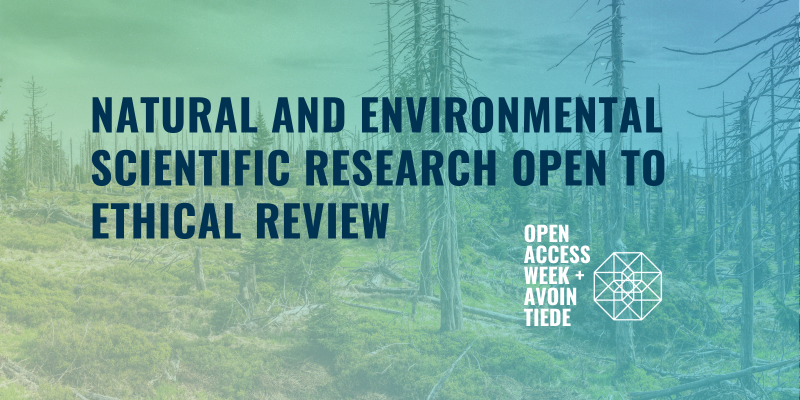In medical research an ethical review is always required, in human sciences review applies only to precisely defined research configurations.
What ethical review means is advance scrutiny and evaluation of a research plan in the light of the ethical practices generally followed in that particular discipline of science, with special emphasis on preventing any harm that the research or its results might cause to the research subject.
The Medical Research Act and Decree (488/1999) regulates medical research involving human beings. The ethics committees of hospital districts are responsible for ethical pre-evaluation of medical research. The National Committee on Medical Research Ethics evaluates the ethical aspects of international multi-centre medicinal trials in cooperation with research ethics committees.
The Research Act only applies to medical research. For research in the humanities and social and behavioural sciences, the Finnish National Board on Research Integrity TENK has issued a set of recommendations on the ethical principles to be followed as well as a proposal for arranging ethical review in these sectors.
In research in the humanities and social and behavioural sciences review applies only to precisely defined research configurations:
- 1. The study involves an intervention in the physical integrity of subjects,
- 2. The study deviates from the principle of informed consent (ethical review is not required if the research is based on public documents, registries or archived data),
- 3. The subjects are children under the age of 15, and the study is not part of the normal activities of a school or an institution of early childhood education and care, and the data are collected without parental consent and without providing the parents or guardians the opportunity to prevent the child from taking part in the study,
- 4. The study exposes research subjects to exceptionally strong stimuli and evaluating possible harm requires special expertise (for example, studies containing violence or pornography),
- 5. The study may cause long-term mental harm (trauma, depression, sleeplessness) beyond the risks encountered in normal life,
- 6. The study can signify a security risk to subjects (for example, studies concerning domestic violence).
If the research contains any of the factors above and the research has not undergone ethical review, this may constitute a violation of responsible conduct of research (RCR) and, where necessary, it may be resolved through the process of handling allegations of research misconduct.
An ethical review statement may also be requested when a funding body, collaborative partner, research object or publisher so requests. However, it must be noted that a statement cannot be requested once the research has commenced. Where research is carried out or data is gathered outside Finland, the researcher must familiarise themselves with the ethical review practices in the target country.
More information about these research configurations and ethical review in Finland can be found in The ethical principles of research with human participants and ethical review in the human sciences in Finland.
Updated 16.4.2020.
Further information:
Ethical review in Finland: http://www.tenk.fi/en/ethical-review-in-finland
The Medical Research Act and Decree: https://www.finlex.fi/fi/laki/ajantasa/1999/19990488
You might also be interested in
Tämä teos on lisensoitu Creative Commons Nimeä 4.0 Kansainvälinen -lisenssillä. Detta verk är licensierat under en Creative Commons Erkännande 4.0 Licens. This work is licensed under a Creative Commons Attribution 4.0 International license.


